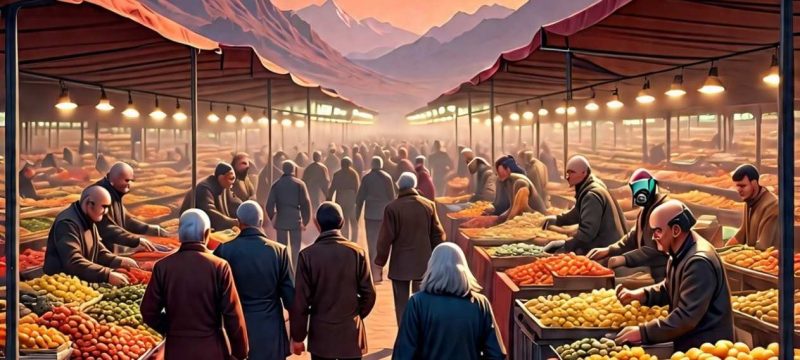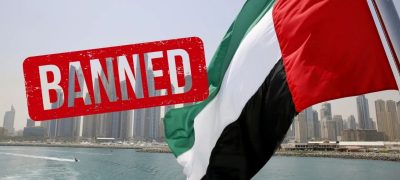Pakistan is a strange country. Stranger still are its laws, and strangest of all are those entrusted to enforce them. In the developed world, governments do not dictate market prices. Markets remain free, yet one principle reigns supreme: zero compromise on quality and safety. If an expired product is discovered on a store shelf abroad, the fine is so crushing that the owner remembers it for life.
If anyone dares to re-date or tamper with packaging, the punishment echoes across generations.And here at home? Expired medicine or stale meat is simply given a new wrapper and a fresh date stamp before being tossed to unsuspecting consumers. No one asks, no one checks. The only “punishment” we ever hear is the hollow assurance: “Notice has been taken.”In the developed world, when a product nears its expiry, its price plummets. A clearance sale is genuinely a sale. The phrase “selling dirt cheap” is lived in practice. But in Pakistan, poultry listed on the government rate sheet at one price sells in the bazaar for double.
Lodge a complaint and you soon discover the regulator is himself a partner in the mafia. “Monthly cuts” flow in every direction. Every hand is dipped in the same ink. The poor public is left only with newspaper headlines announcing: “Action has been initiated.”Walk into a vegetable market and the farce becomes almost comic. A vendor sits atop a heap of potatoes. Ask him the price, and he reacts as if you have just pried into his family secrets. Sometimes he mutters: “That’s the market rate.” At other times: “Everyone knows the price.”
And if you insist on seeing the rate list, prepare for insult as if you have crossed an invisible line of dignity.Why is the price hidden? Is it a state secret? A wartime strategy? Or the vendor’s hereditary privilege? The truth is simpler. This is the Hidden Price Tag Mafia. Their rule is blunt: charge each customer as much as they can be squeezed. The poor man, already crushed under inflation, is the first to be robbed. The well-dressed or educated buyer is charged extra as a penalty for looking “affluent.”The solution is neither new nor complex.
Around the world, it is called the price tag culture. Every item, from vegetables and fruit to flour and lentils, must carry a clear, bold price tag. Not a scribbled scrap of paper tucked into a corner, but a large, visible tag like the bright discount boards in supermarkets:Potatoes – Rs. 100 per kg.The tag must be updated daily, in line with the official rate list. Today’s price must change tomorrow, but only according to the list and not at the whim of the shopkeeper. Anyone selling without a price tag should be marched straight to jail. Yes, jail. Because this is not a petty oversight. This is daylight robbery against the poor, and robbery is a crime whether committed with a gun or with a hidden price.
Daily inspections must be mandatory. Just as police stations operate on shifts, so too must price control teams. Each market must be patrolled, rate lists checked, tags verified. If any vendor is found selling without a tag, an instant fine and arrest should follow. And let it be said plainly: incompetent assistant commissioners, incompetent food officers, and incompetent price control officers must be dismissed from service.Now imagine, just for a moment, walking into a market where every stall displays proud, bold boards:Potatoes – Rs. 100 per kgOnions – Rs. 120 per kgTomatoes – Rs. 90 per kgApples – Rs. 250 per kgBananas – Rs. 150 per dozenWhat a relief it would be.
No haggling, no quarrels, no humiliation. The buyer pays, the seller sells, and fairness finally breathes in the marketplace.Contrast this with Pakistan’s everyday drama of bargaining. A customer pleads: “Give it for Rs. 100.” The shopkeeper snaps back: “Not a paisa less than 150.” After endless wrangling, the customer caves and pays more than he should. With a price tag system, this theater collapses instantly.So why is it not happening? The answer is obvious. Our rulers are not serious. Shopkeepers are considered a political vote bank.
To keep them happy, the masses are bled dry. “Sasta bazaars” (cheap markets) are set up as little more than political theater. Goods there are either substandard or priced so absurdly that buyers wonder: “Is this the cheap market, or are we the fools?”If the government truly wants reform, it has only two choices.First, free the market completely, intervening only in quality control, as advanced nations do.
Second, if price control is non-negotiable, then revolutionize the system. Banish cosmetic inspections, fire incompetent officers, and implement a transparent price-tag regime.Modernize it further. Install electronic boards in every market. Send SMS notifications to every citizen: “Today’s rates: Tomatoes Rs. 80, Onions Rs. 60, Chicken Rs. 300. Don’t argue, report violations.” But in Pakistan, SMS exists only for telecoms to push their endless “packages.”The bitter truth is that Pakistanis are not dying under inflation alone. They are suffocating under this manufactured, mafia-driven inflation, one that thrives despite laws meant to prevent it.
Encroachment operations topple only the carts of the poor, while the grand mafia barons remain untouchable.The time has come for the state to decide: is it on the side of the people, or the side of the mafia? If it is with the people, then the law must be unequivocal: “Every item must bear a bold price tag, updated daily, and any violation must end in jail.”If not, then the government should at least have the honesty to admit: “We are helpless. Survive as best you can.”And beware.
On the day the people decide to set their own price, these very price control officers and their mafia bosses will find themselves auctioned in the market alongside onions and potatoes.









